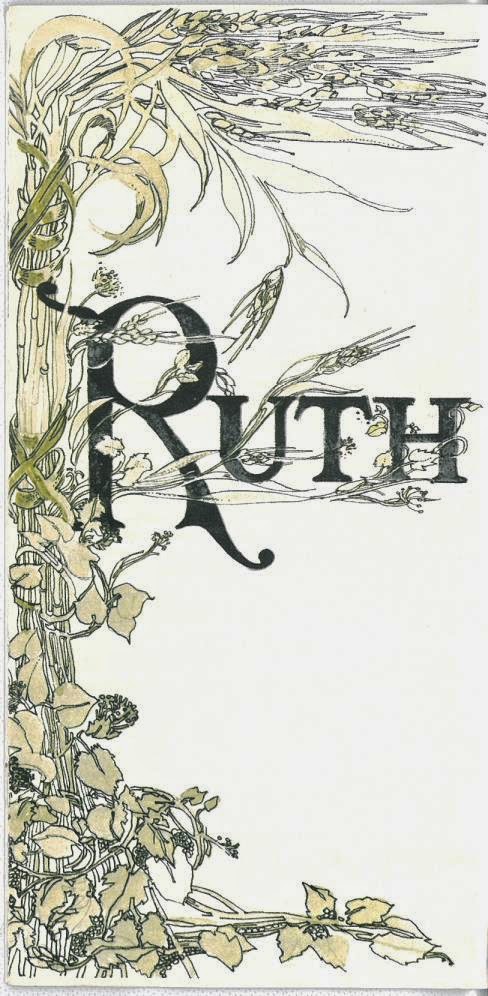The Book of Ruth Series- The Near Kinsman -Lesson 21
 |
sarahbmartin.wordpress.com
|
Before we can move our thoughts to the city gate and
Boaz meeting with the closer relative, we must understand the Law of God in
relation to the near kinsman.
In Leviticus 25:25, God gave a close relative the
right to redeem or buy back a possession a poor brother or kinsman had sold.
With Deuteronomy 25:5-10, God conveyed His requirement for a man to marry his brother's widow, if they had no child to carry on the family name. When the surviving brother married the widow, the law would consider her firstborn son to be the son of her dead husband. A brother could refuse this familial obligation, but at great cost. The widow would then publicly shame him by spitting in his face and removing his sandal, thus disgracing his name in all Israel.
Now, after receiving God’s Law in Exodus, and the retelling
of it forty years later, this new generation of Israelites, had a hard time obeying
it. But this is not a surprise, for no one can fully keep God’s Law, because we
are born with a sin nature. God designed His Law this way, to help them, and us,
realize our need for a Savior.
Nevertheless, as the centuries passed, Israel found
ways to apply the gist of God’s law without adhering to the letter of it.
For us, remembering Ruth began in the time of the
Judges, when everyone did what was right in their own eyes, will help as we
study chapter four. There Israel combines the Leviticus and Deuteronomy laws
and Ruth, the widow, is curiously missing.
So, let’s examine the requirements for a kinsman to redeem.
According
to one of my favorite teachers, Pastor Rob Lindsted, of Bible Truth Ministries,
“there are five things that had to characterize the near kinsman:
1)
He had to have the right to redeem. In other words, he must be related.
2)
He had to be willing to redeem. Redemption was voluntary.
3)
He had to be free to redeem. He could not be a slave himself.
4)
He had to be able to redeem. God’s law set a high standard for
redemption.
5)
He had to be wealthy enough to redeem. Redemption took much money.”
 |
| shutterstock.com |
Observing
Boaz, we know he is a family member and that another relative is closer, much
like the situation of a first and second cousin. Nevertheless, Boaz is related.
This gives him the right to redeem Ruth and Elimelech’s field. He is not a slave.
He is a godly man and a highly respected landowner. Therefore, not only is Boaz
free to redeem, but willing and able. He had met God’s high standard for
redemption and his barley harvest was bountiful. Boaz would have no problem
affording the redemption price and raising up a child to carry on Mahlon’s
family name.
As
a kinsman-redeemer, Boaz qualifies on all accounts. But, how does the nearer
kinsman stack up?


.jpg)

Comments
Post a Comment
I would love to read your comments and try to answer any questions. Let's learn together.